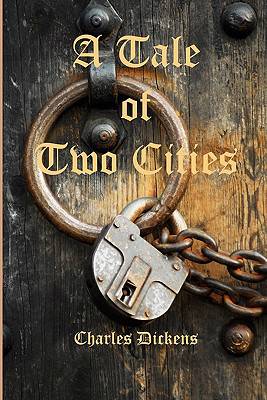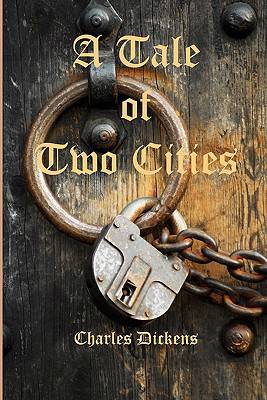
- Afhalen na 1 uur in een winkel met voorraad
- Gratis thuislevering in België vanaf € 30
- Ruim aanbod met 7 miljoen producten
- Afhalen na 1 uur in een winkel met voorraad
- Gratis thuislevering in België vanaf € 30
- Ruim aanbod met 7 miljoen producten
Zoeken
Omschrijving
Review from Amazon.com "A Tale of Two Cities" is a novel many have read and others have claimed to have read, but is completely appreciated by few. A work of historical fiction, this may be Dickens' best known work and most often quoted work. Where "Great Expectations" lacks realism, "A Tale of Two Cities" follows a record of historical events. Being so well crafted, it is remarkable the novel was written under than duress of constant deadlines. Protagonist Charles Darnay is caught between the parallels of England and France, nobility and peasantry. Though the wording is very plotting at times, readers will expect some twists and be surprised by others. Taking an unlikely bride, Darney would seem to have reached an equilibrium. But two trials for treason lead to revelations threaten to tear all that is sacred from him. Known as the villain, Madame Defarge may hold a reputation with some before reading the book. Yet plot details are able to reveal her as a sympathetic character. Yet the vile nature of her plotting ultimately corrupts this glimmer. With themes of social justice and the French Revolution in the background, historians have come to appreciate this work. Those who read the book with less appreciative eyes may overlook the biting humor in the novel. Omitting this aspect is allowing one's self to miss a highlight of the book. It is a novel that has greatness hidden in many places." (Timeless Classic Books)
Specificaties
Betrokkenen
- Auteur(s):
- Uitgeverij:
Inhoud
- Aantal bladzijden:
- 336
- Taal:
- Engels
Eigenschappen
- Productcode (EAN):
- 9781453687659
- Verschijningsdatum:
- 22/07/2010
- Uitvoering:
- Paperback
- Formaat:
- Trade paperback (VS)
- Afmetingen:
- 152 mm x 229 mm
- Gewicht:
- 494 g

Alleen bij Standaard Boekhandel
+ 55 punten op je klantenkaart van Standaard Boekhandel
Beoordelingen
We publiceren alleen reviews die voldoen aan de voorwaarden voor reviews. Bekijk onze voorwaarden voor reviews.











